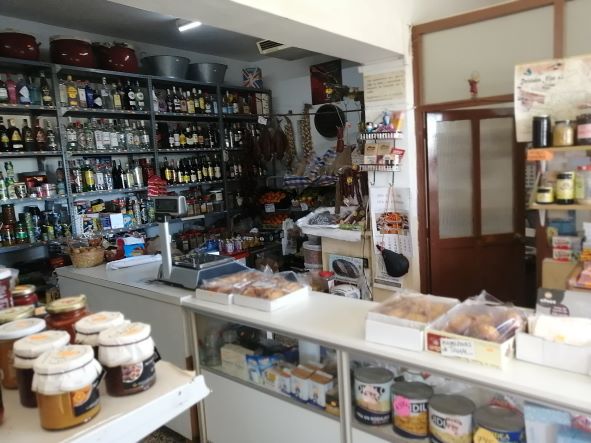Here's a little background on what life was like in our village in the early 60’s. We would buy our food fresh every day from a tin-shack market-stall. Maria, the lady that sold fruit and vegetables, was illiterate and couldn’t count so she had three rocks - one worth one peseta, one was a duro (five pesetas) and the third was for 25 pesetas; so anything you bought had to weigh the same as some combination of her rocks. She would load up her hand-scales with a likely-looking pebble and then put the merchandise in the other cup. If you wanted two bananas she would give you seven and round up the price because the two bananas didn’t weigh the same as any of her modest collection of weights.
In those far-off times, before cash registers, accountants and IVA, everything worked on the honour system and most people paid when their crops (or their pensions) came in. Failing that, they swapped something for something else. The old mayor told me he had once exchanged a house in the square (it later became a bar) for a goat.
Over in the main drinking establishment - a kind of club for the men who would sit comfortably at an empty table for hours as they smoked their Ducados - the foreigners were a breath of fresh air, at least from a business point of view. In Pedro's bar you could just keep eating your tapas and drinking your beer and wine and when you finished he would ask what you had had and charge accordingly. He kept a piece of chalk handy for the harder sums. A glass of brandy (you were allowed to call it coñac in those days) would cost five pesetas (around three cents of a euro).
Lurking just outside the door, La Muda, the deaf (and dumb) lady would sell cigarettes from her tray. You could buy a single smoke or even a whole pack. She also sold rough cigars from Murcia and Bazooka Joe bubble gum for her younger customers.
The few foreigners who lived in our village, understandably confused by the local version of written Spanish, were relieved when Juana put a sign over her tiny grocery just by the church - a place which might properly have been called una tienda de comestibles - to read both Tienda and Foodings. Juana is there behind the count er, passing you the tins of peaches, bottles of Hero fruit juice, wine in returnable bottles at 14 pesetas a bottle, pickled fish and canned butter from Holland.
er, passing you the tins of peaches, bottles of Hero fruit juice, wine in returnable bottles at 14 pesetas a bottle, pickled fish and canned butter from Holland.
Juana was more on the ball than María, and we were expected to count our change.
The third place on our regular shopping excursion was the grandly named Super. Here you could pick things off the shelf and hand them to Isabel who would furiously bang the newly-fangled cash register. Cash was king, although bits of paper were often stored against later payment. Her previous accounting system for charges had recently been canceled for all time by her irate father. This earlier system was for each family to have a kind of family jam-jar and when one made a purchase a certain number of garbanzo beans were placed in one's jar. You can see how this could work.
When you came to pay Isabel would painstakingly count the beans and you would oblige her accordingly. One terrible night, a chicken somehow got loose from the next room which someone had forgotten to lock and it knocked over some of the jars and started in on the garbanzos. The story goes that no one panicked, Isabel (with her father standing behind her) just asked each customer how much they thought they owed and that was what they paid.
With the money, they bought the cash register and a booklet to explain how it worked.
The weekly market brought in a variety of fruit and vegetables, with one old lady selling her veggies out of a wheelbarrow; and now and again a truck would arrive in the main square, honk furiously and then throw open its rear door. It might sell shoes, or fish (or maybe even both - it was always worth coming out for a look).
Those of us who owned a car could always drive the ten kilometres to the local market town. Which we occasionally did. There was even a proper supermarket there, called Emilio's. One Englishman called Roger used to drive there most days, collect people's groceries, and put ten per cent on top.
Don't get me wrong, it wasn't perfect. We missed tea-bags terribly.